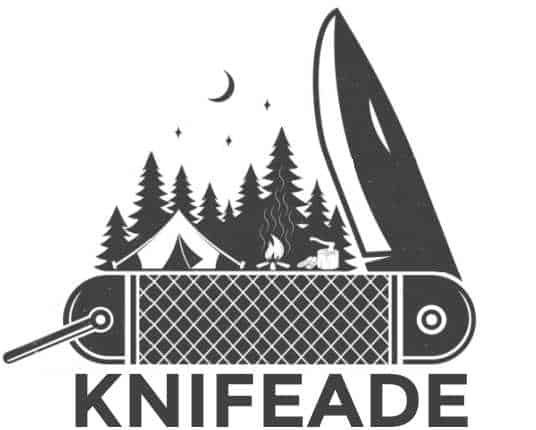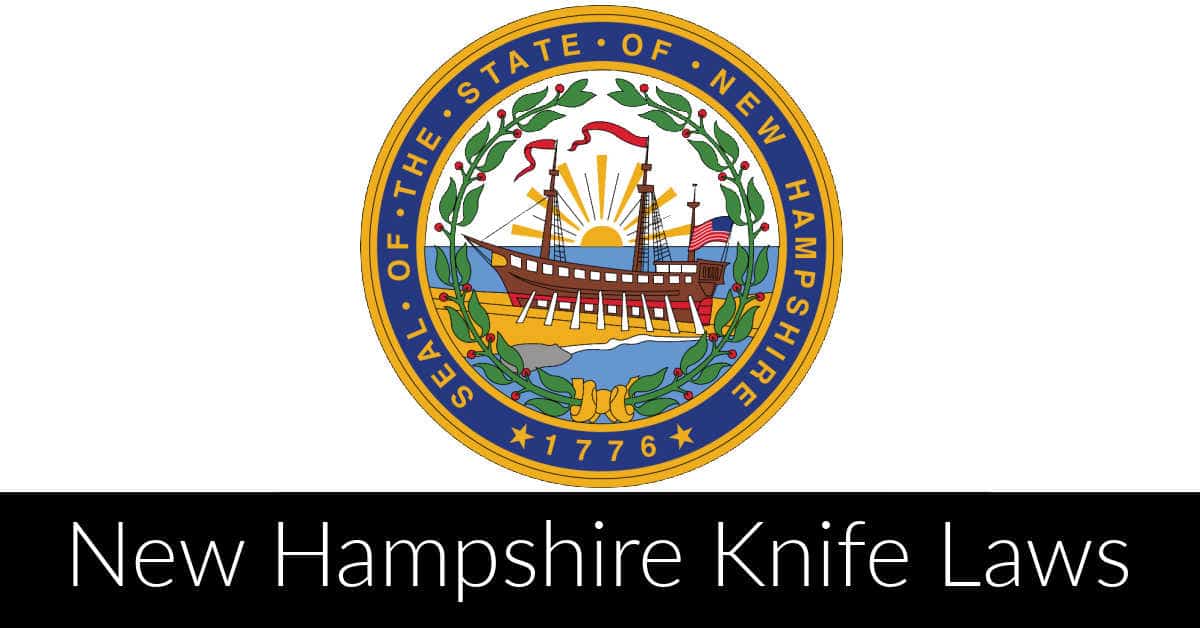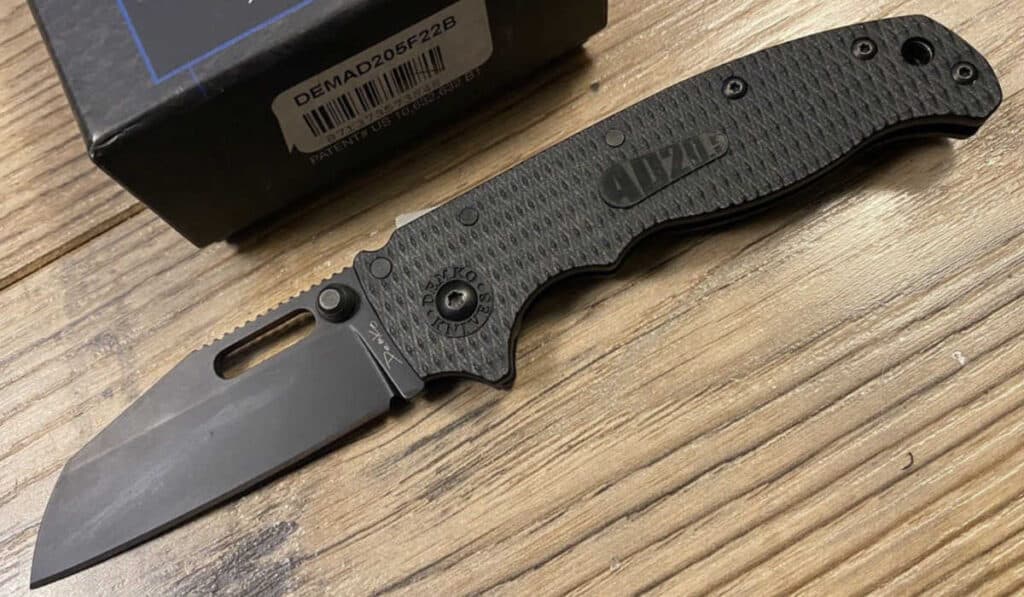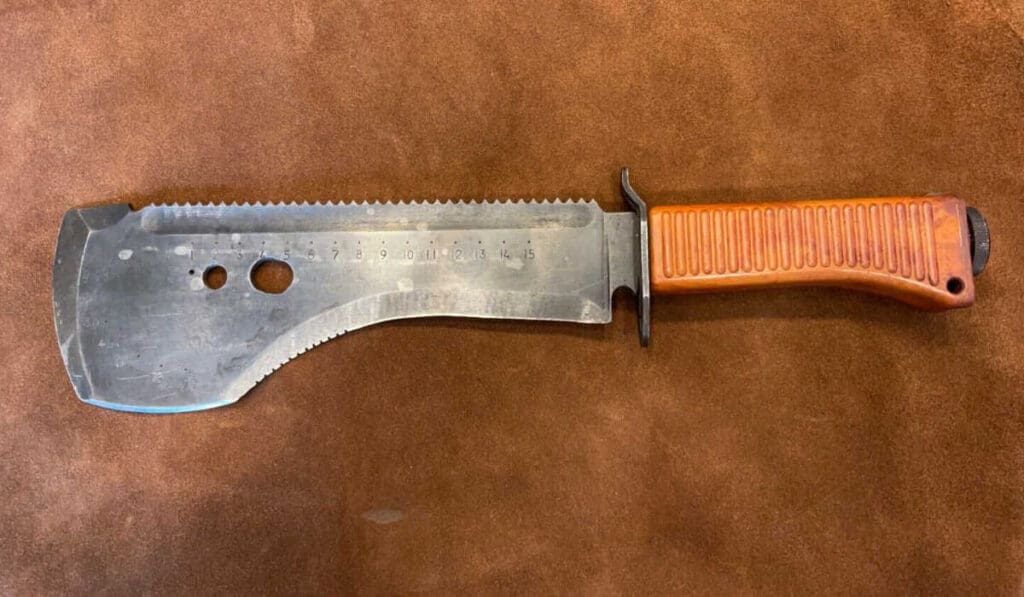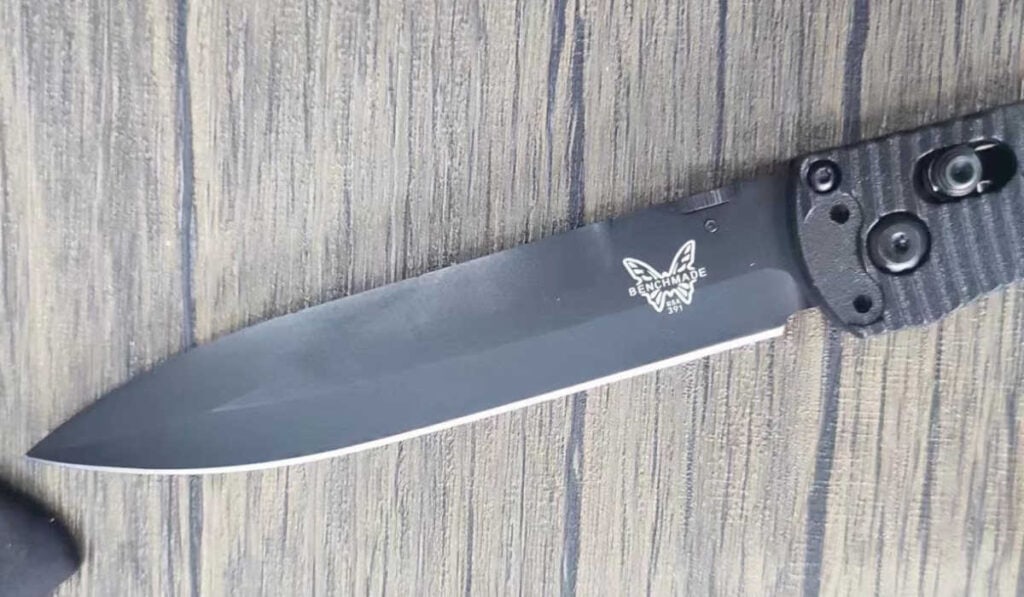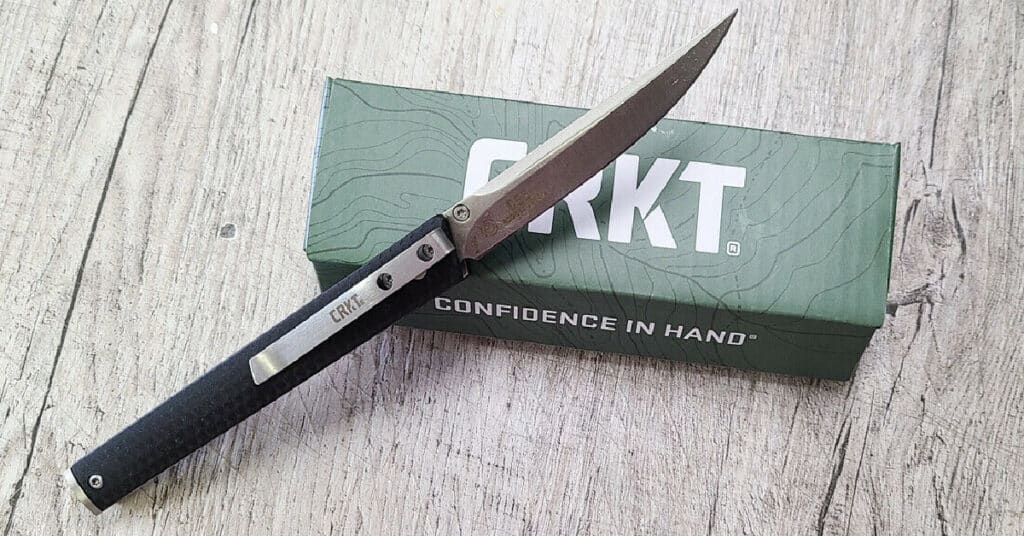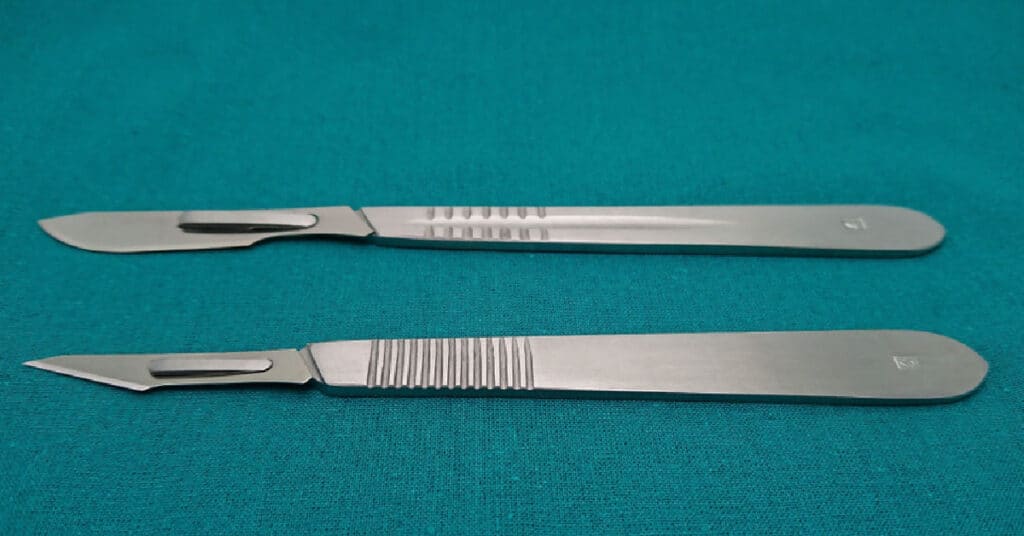Last updated on October 21st, 2023 at 02:11 am
As an Amazon Associate I earn from qualifying purchases.
The state of New Hampshire has a straightforward approach when it comes to the possession and use of knives.
Understanding these knife laws is crucial for anyone who owns or carries one in the state, as violating them can have serious legal consequences.
In this guide, we’ll cover everything you need to know about New Hampshire knife law including carrying and concealing knives, age restrictions on ownership and use, prohibited places where they cannot be carried or concealed, potential penalties for violations involving illegal possession or use of knives, defenses available against charges related to such violations and more.
Stay informed so that you don’t find yourself in an unfortunate situation due to ignorance regarding New Hampshire knife law.
Our Top Rated “50-State-Legal” Knives
*These knives are listed based on their broad legality across states, but always consult your local laws before making a purchase.
Preemption Laws For Knife Owners In New Hampshire
New Hampshire has a preemption law that prohibits local governments from regulating the possession, sale, transfer, or transportation of knives. Any laws regarding these activities must be enacted at the state level and cannot be regulated by cities or counties.
What Is Preemption Law?
Preemption law is a legal doctrine that prevents lower levels of government (such as cities and counties) from passing their own laws or regulations when those laws conflict with state-level legislation. In New Hampshire, this means that any city or county ordinance related to knife ownership must be consistent with state-level statutes regarding knife ownership and use.
Definition of Knife in New Hampshire
In New Hampshire, a knife is defined as “any instrument having a sharpened blade with an edge capable of cutting or stabbing another person”. This includes pocket knives, folding knives, switchblades, daggers, and other types of blades.
Types of Knives Allowed in New Hampshire
Under New Hampshire law, it is legal to own and carry most types of knives including pocket knives and folding blades. There are no specific restrictions on knife types except for individuals who have been previously convicted of a felony.
Switchblades are also allowed provided they have a blade length no greater than three inches in total length. Dirks and daggers are also permitted without any specific length restrictions
Prohibited Knives in New Hampshire
Certain types of knives are not allowed in New Hampshire. Specifically, ballistic knives and switchblades with a blade length of more than three inches are prohibited.
Age Restrictions on Knife Ownership and Use
According to the state’s law, it is illegal for anyone under the age of 18 to possess a knife without parental supervision. Individuals over the age of 18 can legally own and carry a knife in public without needing any special permission.
Restrictions On Carrying & Concealing Knives
In general, New Hampshire does not differentiate between the concealed or open carry of knives and there is no permit or license required for either.
However, carrying or concealing any type of knife on school grounds, in educational facilities, or at school-sponsored events is strictly prohibited by law, as is carrying any type of knife into government buildings such as courthouses and police stations.
Penalties for Violating Knife Laws
Violating knife laws in New Hampshire can result in serious consequences. If you are found guilty of carrying a prohibited knife or carrying a knife in a prohibited location, you can face a fine of up to $2,000 and/or up to one year in jail.
Possession of Prohibited Knives
Possession of certain types of knives is prohibited in New Hampshire and is subject to more severe penalties than other violations. These include some switchblades, gravity knives, daggers, stilettos, and ballistic knives.
FAQs in Relation to New Hampshire Knife Law
What size knife is legal to carry in NH?
There is no specific restriction on blade length for most types of knives in New Hampshire. However, switchblades are limited to a blade length of no greater than three inches.
Are butterfly knives illegal in New Hampshire?
No, butterfly knives, also known as balisongs, are not illegal in New Hampshire.
Are gravity knives legal in New Hampshire?
Yes, gravity knives are legal to own in New Hampshire. However, carrying them in certain prohibited areas, like school premises or government buildings, can lead to serious legal consequences.
Are switchblades legal in New Hampshire?
Yes, switchblades are legal in New Hampshire, provided that they have a blade length of no greater than three inches.
Remember that these laws are subject to change and it’s crucial to stay up-to-date with the latest legal updates or changes. If you have any specific concerns about carrying or owning a knife in New Hampshire, it’s recommended to consult with a legal professional.
New Hampshire State Knife Law References
Official Sources of New Hampshire’s Knife Laws
- New Hampshire’s most recent statutory code, the New Hampshire Revised Statutes Annotated (RSA), provides official information on the state’s knife laws.
Significant Court Cases
| Case Title | Summary |
|---|---|
| Man Convicted in Hooksett Stabbing Death | Dillon Sleeper was convicted for Second Degree Murder for a stabbing incident on July 24, 2022. |
| Concord Felon Knife Threat Charge | A woman from Concord was arrested on a felony knife threat charge in July. |
| Merrimack Man Knife Threat Case | Shain Sargent of Merrimack was indicted for threatening to kill a woman with a knife. |
Timeline of Major Changes
- 2009: A bill was introduced relating to the penalty for using certain types of knives in the commission of an offense.
- 2010: Governor Lynch signed HB1665 into law on May 18, preventing any political subdivision in New Hampshire from banning the ownership, possession, sale, or carry of knives.
- 2021: On January 11, the New Hampshire Second Amendment State Preemption Act, HB 307, was introduced to strengthen the existing preemption law for knives.
- 2022: On June 27, Governor Chris Sununu signed HB 1178, prohibiting the state from enforcing any federal statute, regulation, or Presidential Executive Order that restricts or regulates the right of the people to keep and bear arms, including knives.
Conclusion
In conclusion, it is important to understand the laws surrounding knives in New Hampshire.
While knife ownership and use are generally allowed, there are certain restrictions and prohibitions that must be followed.
Carrying and concealing knives can be illegal depending on where you are located, as well as for those under a certain age. Penalties for violating New Hampshire knife law can range from fines to jail time, so it is important to know your rights when carrying or using a knife in the state of New Hampshire.
So let’s work together towards creating sensible (and understandable) policies on carrying pocket knives in New Hampshire!
Do Sheepsfoot Blades Have A Purpose? (Cuz They’re Ugly…)
Spetsnaz Machetes – Blades Of The Russian Special Forces
What Is The Actual Purpose Of A Spear Point Knife Blade?
CRKT CEO Review – Coolest, Most Worthless Knife Ever?
How Sharp Is A Scalpel? (Is It Sharper Than A Razor?)
Can You Shave With A Knife? (Yes, Here’s How)
As an Amazon Associate I earn from qualifying purchases.
